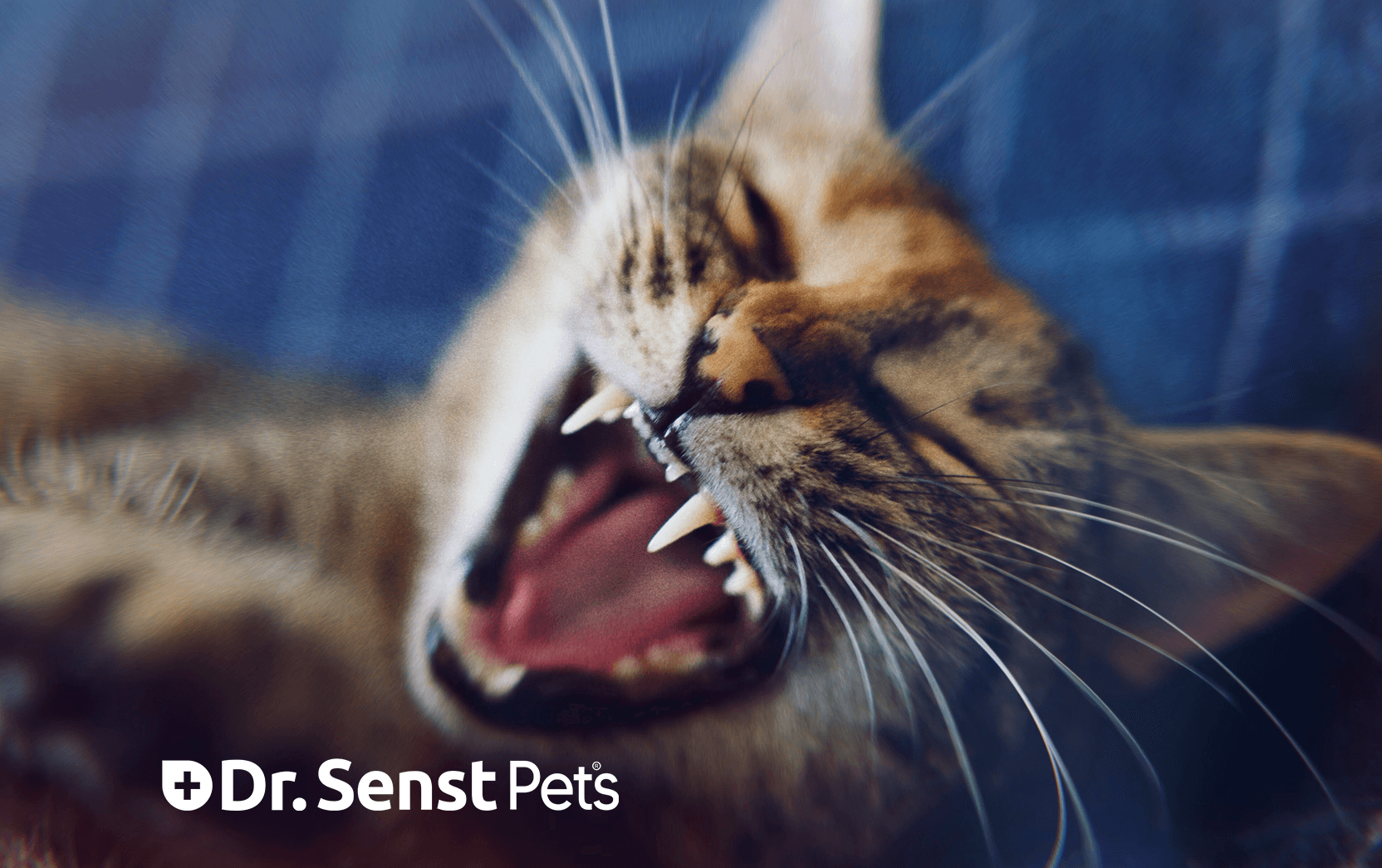
- by Dr.Thilo Senst
How to Prevent Plaque and Tartar Buildup in Cats
- by Dr.Thilo Senst
How to Prevent Plaque and Tartar Buildup in Cats: A Comprehensive Guide
Keeping your cat's teeth clean is essential for their overall health. Dental issues such as plaque and tartar buildup not only lead to bad breath but can result in more serious conditions like gingivitis, periodontal disease, and tooth loss. Cats are particularly prone to dental problems as they age, making it crucial for pet owners to adopt preventive measures to maintain their pet’s oral health.
This article will delve into the causes of cat plaque, how it progresses to tartar, and practical steps you can take to prevent buildup. By understanding the importance of regular oral care, you can help your cat maintain a healthy mouth, and ultimately, a better quality of life.
Plaque is a sticky film of bacteria that forms on your cat’s teeth after they eat. It accumulates around the gums and, if not removed, can harden into tartar. Over time, tartar irritates the gums, leading to gingivitis and more severe dental diseases. Cats are adept at hiding pain, so their dental discomfort often goes unnoticed until the problem becomes significant.
According to the British Veterinary Dental Association (BVDA):
These statistics highlight the growing importance of feline dental health and why preventing plaque and tartar buildup is essential for your cat's well-being.
Several factors contribute to plaque and tartar buildup in cats:
When plaque is left untreated, it hardens into tartar. While plaque can be removed by brushing, tartar can only be removed by professional dental cleaning at a vet’s office. Tartar build-up can cause:
Brushing your cat’s teeth is the most effective way to prevent plaque and tartar buildup. Use a toothbrush designed for cats and veterinary-approved toothpaste. Never use human toothpaste as it can be toxic to pets.
Tip: Start slowly by introducing the toothbrush and toothpaste as part of your cat’s routine. Aim to brush their teeth at least 2-3 times a week for best results.
Dental treats and toys are designed to help scrape plaque off your cat's teeth. These treats contain enzymes that help reduce the bacteria in your cat's mouth and promote fresh breath.
Recommended Dental Toys: Look for rubber or textured chew toys that help clean your cat’s teeth as they play.
Many pet food manufacturers offer dental diets that are specially formulated to reduce plaque buildup. These diets often contain larger kibbles that encourage chewing and are designed to scrape off plaque as your cat eats.
Tip: Speak with your vet about the best dental diet for your cat, particularly if they already show signs of tartar buildup.
Water additives are an easy and effective way to improve your cat’s oral health. These products contain ingredients that help prevent plaque from hardening into tartar.
Tip: Add these solutions to your cat’s water bowl each day to keep their mouth clean and bacteria at bay.
Routine dental check-ups are essential for early detection of dental issues. Your vet can perform professional cleanings to remove tartar that cannot be removed at home. Most cats require a professional dental cleaning at least once a year, depending on their oral health.
Diet plays a crucial role in maintaining your cat’s oral health. Dry kibble is often recommended because it helps to mechanically scrape plaque off the teeth. However, some cats prefer wet food, which can contribute to plaque buildup. If your cat primarily eats wet food, you may need to take additional preventive measures, such as regular brushing and dental treats.
Plaque and tartar buildup can lead to more severe health issues if not addressed early. Cats with untreated dental disease are at risk of developing:
An analogy can be drawn between plaque buildup and the accumulation of dust in a house. Just as dust can accumulate unnoticed, so too can plaque accumulate on your cat’s teeth without immediate signs of discomfort. Regular "cleaning" is necessary to prevent long-term damage.
Q: How often should I brush my cat’s teeth?
A: Ideally, you should brush your cat’s teeth daily, but if this isn’t possible, aim for at least 2-3 times per week.
Q: What are the signs that my cat has dental issues?
A: Signs include bad breath, difficulty eating, drooling, red or swollen gums, and visible tartar buildup.
Q: Can I use human toothpaste on my cat?
A: No. Human toothpaste contains ingredients like fluoride, which are toxic to cats. Always use toothpaste specifically designed for pets.
Q: When should my cat have a professional dental cleaning?
A: Most cats require a professional dental cleaning once a year, but this can vary depending on your cat’s oral health. Regular vet check-ups will help determine the appropriate schedule.
Preventing plaque and tartar buildup in cats is essential to avoid dental diseases that could impact their overall health. By incorporating regular brushing, dental diets, and vet check-ups, you can ensure your cat enjoys a healthy mouth and a long, happy life.
For additional support, consider using products from the Dr. Senst Pets range to aid your cat’s oral care:
![]()
Enter your details & download our comprehensive 50+ page printable Dr. Senst Pet Care Planner completley FREE! - keep track of all your pet’s needs, from medical history and training to vet visits, grooming, diet, and more!










Share:
Best Hypoallergenic Dog Foods for Sensitive Skin
Omega-3 Fatty Acids for Cat Skin Health: Benefits and Importance